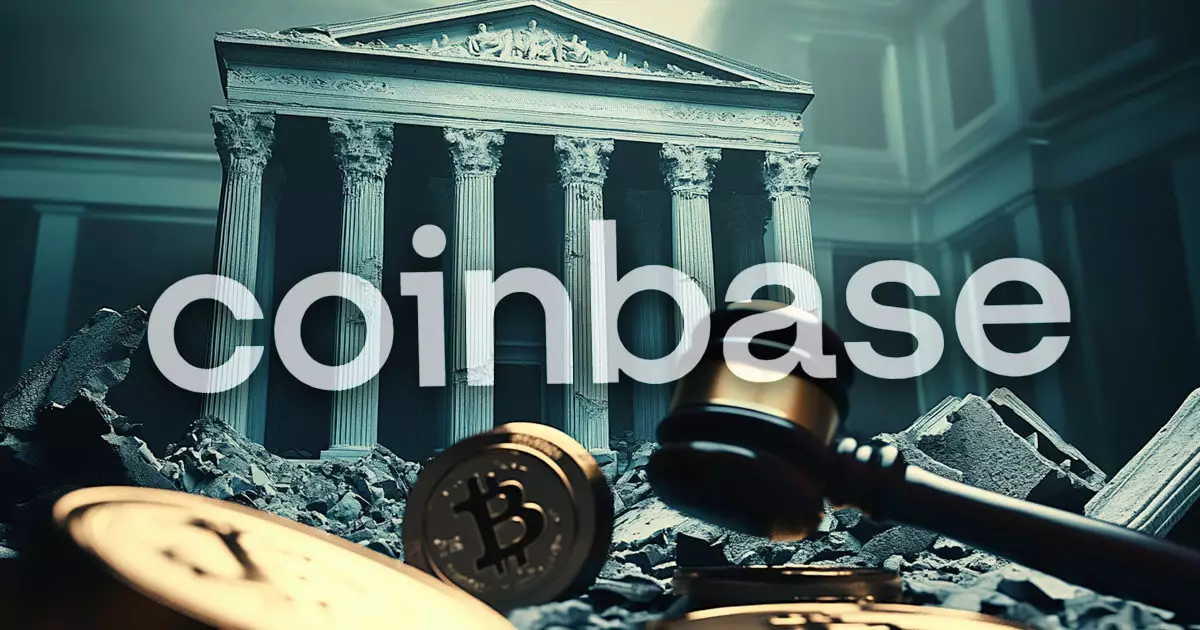In a noteworthy decision, U.S. District Judge Katherine Polk Failla of the Southern District of New York has allowed Coinbase to pursue an interlocutory appeal in its ongoing litigation against the U.S. Securities and Exchange Commission (SEC). This ruling, made on January 7, signifies a crucial moment in the cryptocurrency realm, as it addresses a pivotal legal question about the classification of digital assets. The crux of the debate focuses on whether an investment contract necessitates the existence of an actual contract, raising vital concerns for the classification of cryptocurrency transactions under federal securities laws.
The Implications of the Ruling
By granting this interlocutory appeal, the judge is essentially pausing the current proceedings to seek clarity on an ambiguous aspect of securities law. The SEC’s accusations against Coinbase, which began on June 6, 2023, revolve around claims that the platform has been facilitating unregistered securities offerings linked to its cryptocurrency assets and staking programs. As the courtroom drama unfolds, the decision allows Coinbase to escalate its case to the Second Circuit of the U.S. Court of Appeals, potentially reshaping the regulatory frameworks governing digital currencies.
The implications of this ruling extend beyond Coinbase itself. With Judge Failla acknowledging the importance of the legal questions at hand, this moment highlights a growing tension between cryptocurrency innovators and regulatory bodies. Industry experts view the outcome of the Second Circuit’s decision as essential for establishing whether transactions involving digital assets in secondary markets fall under the remit of securities laws, which could redefine the operational landscape for crypto entities.
The response from the cryptocurrency sector has been overwhelmingly positive. Coinbase’s Chief Legal Officer, Paul Grewal, likened the court’s action to a referee pausing a game for a review, emphasizing the anticipation of a clearer regulatory path. Fellow industry leaders, including Jake Chervinsky from Variant Fund, described the ruling as “huge,” underscoring its potential to offer vital guidance on the legal status of digital asset transactions.
Jeremy Hogan, a prominent legal figure, pointed out that interlocutory appeals are uncommon, suggesting that the trial judge recognizes the need for a higher court’s insight. This observation hints at the crucial contention shared between this case and the ongoing Ripple lawsuit against the SEC, thereby indicating a broader judicial examination of how cryptocurrencies are treated under existing law.
As the crypto community rallies around Coinbase, figures like Marco Santori from Kraken and Amanda Tuminelli from the DeFi Education Fund have welcomed this advancement as a collective victory for the entire crypto ecosystem. Tuminelli specifically highlighted the significance of the lawsuit being stayed while Coinbase seeks appellate review, thereby reinforcing the notion of a shared interest in fostering an environment conducive to digital asset innovation.
Coinbase’s successful motion for an interlocutory appeal signals not just a pivotal moment for the company but also reflects larger queries about how cryptocurrency activities will be regulated in the U.S. Going forward, the decisions rendered by the appeals court will undoubtedly have long-lasting effects on the interplay between technology and regulation within the ever-evolving landscape of digital assets.

